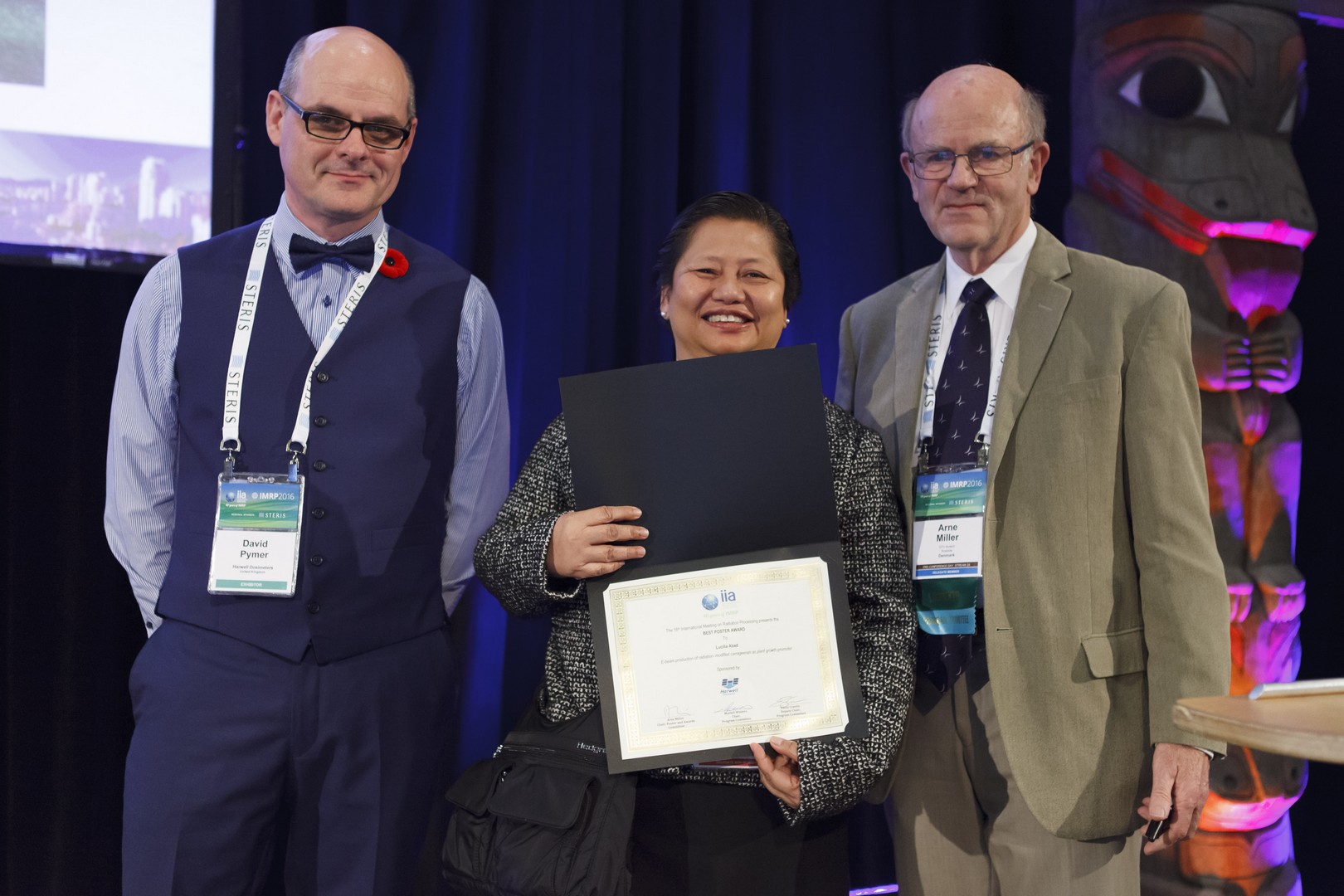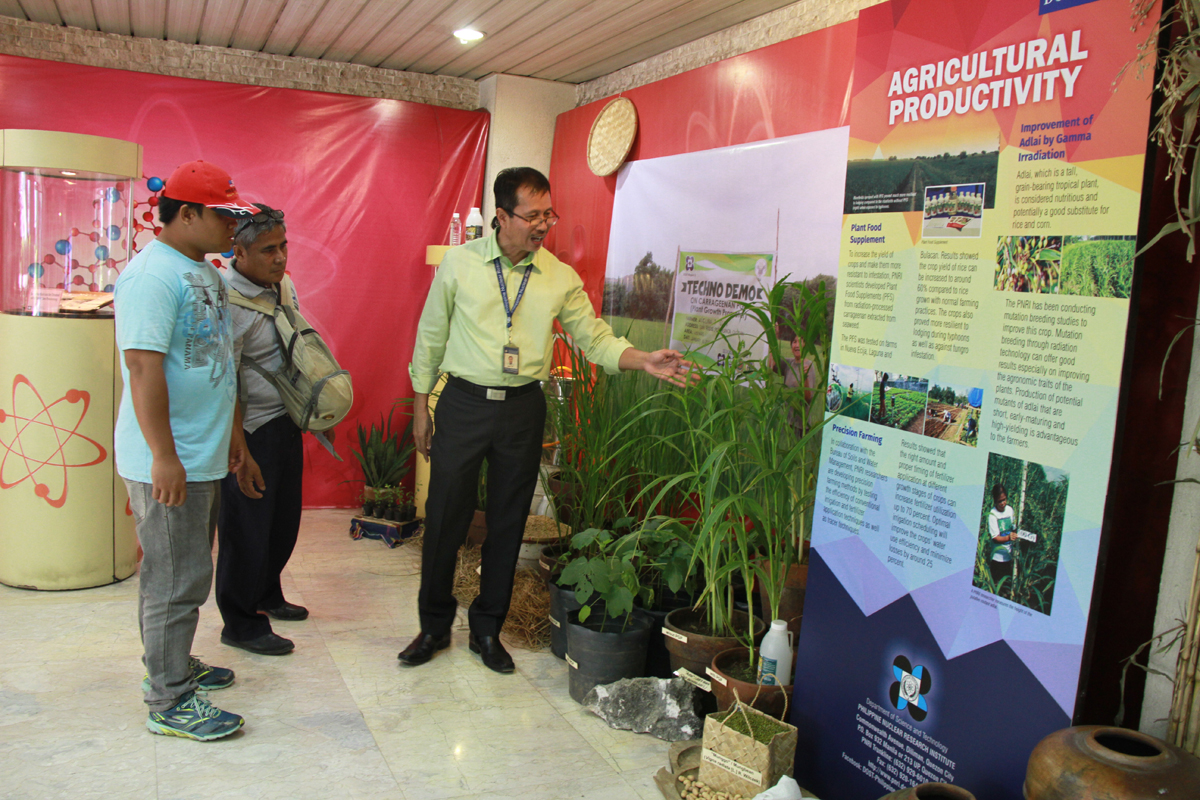
PNRI Scientist Dr. Lucille Abad receives the Best Poster Award from the International Irradiation Association (IIA) for the PNRI project on the development of irradiated natural polymers as Plant Growth Promoters (PGPs) on November 10 in Vancouver, Canada.

PNRI research specialist Fernando Aurigue explains the PGP exhibits to visiting farmers during the 44th Atomic Energy Week at PNRI.
PNRI Wins Best Poster Award in Canada for Plant Growth Promoters
Bringing home the bacon from the other side of the world, the Department of Science and Technology – Philippine Nuclear Research Institute (DOST-PNRI) ends 2016 by once again gaining worldwide recognition for its research on radiation applications in agriculture.
With their project’s E-Poster “E-beam production of Radiation–Modified Carrageenan as Plant Growth Promoter”, PNRI Scientist and Chemistry Research Section Head Dr. Lucille Abad clinched the Best Poster Award for the Philippines along with other participants from the United States and Ireland during the International Meeting on Radiation Processing (IMRP) held from November 7-11 in Vancouver, Canada.
Organized by the International Irradiation Association, the IRMP serves as a venue where members of the industrial, research and academic sectors from different countries discuss on all aspects of irradiation science and technology. This year’s IMRP poster competition drew submissions from over 80 countries, from which only three submissions, including the Philippines, were selected to receive the Best Poster Award.
The Institute’s PGP project was developed from carrageenan, a natural polymer from red seaweed commonly used in the food industry. The polymer is irradiated and applied by foliar spraying at certain stages of the plant’s life, which later improved the yield and health of crops such as rice, mungbean and peanut.
During field testing, PGPs were proven capable of increasing the yield of rice by up to 65% and making the crops more resilient, whether against strong typhoons or the ravages of tungro infestation. Experiments also showed an increase of up to around ten times the yield for normal practices in mungbean, and up to twice the average yield for peanut.
The PGP project is the product of close collaboration between DOST-PNRI, the Philippine Council for Agriculture, Aquatic and Natural Resources Research and Development and the National Crop Protection Center of the University of the Philippines Los Baños.












































